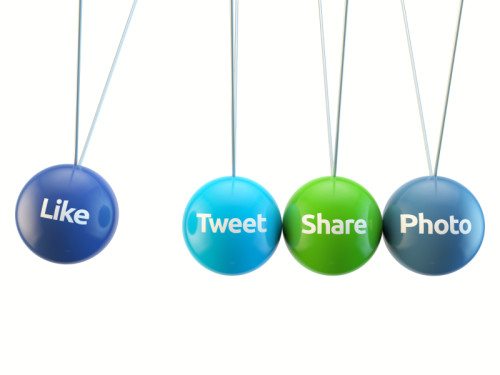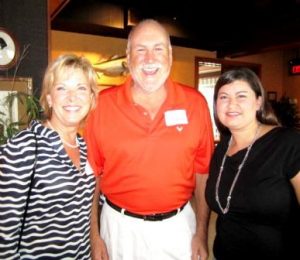 Social media wasn’t a promotional tool a decade ago. Now, it is a primary way for planners to get their events in the public eye.
Social media wasn’t a promotional tool a decade ago. Now, it is a primary way for planners to get their events in the public eye.
Three local experts – two from the Knoxville News Sentinel and one from Moxley Carmichael – share how social media networks affect their marketing strategies before, during and after events.
Facebook appeared in 2004, though it initially was only for students, and reached the general public two years later. Twitter debuted in 2006, and Instagram arrived in 2010.
While seemingly ubiquitous now, social media was not always readily accessible to event planners. Much of its growth has come over the last five years, and more platforms, such as Snapchat, are emerging as major players. Pew Research Center reports that 64 percent of adults in the United States have a smartphone and 75 percent of them use it to access social media.
Social media is a boon for planners because it allows access to thousands of people who might otherwise not be reached and generates instant feedback about an event.
“Social media lets us see changes in public focus and enables the event to adapt and better meet those needs,” said Nicole Taylor, events coordinator for the News Sentinel. “In addition to promoting the event, social media acts as a bridge between the attendees and exhibitors before, during and after the show.”
 Planners also can use social media to generate interest in an event year-round. This works especially well for the News Sentinel’s annual events, such as Bridal and Beyond, Auto Show and Women Today Expo. The events have dedicated websites and Facebook pages, which allows input from the public and vendors, and the social media content is regularly refreshed and engaging.
Planners also can use social media to generate interest in an event year-round. This works especially well for the News Sentinel’s annual events, such as Bridal and Beyond, Auto Show and Women Today Expo. The events have dedicated websites and Facebook pages, which allows input from the public and vendors, and the social media content is regularly refreshed and engaging.
Angie Howell, the News Sentinel’s senior marketing manager, said interaction on the platforms increases in the months leading up to an event, and planners can disclose specific details, including promotional dates, schedules, talent/entertainment and giveaways.
Amanda Shell Jennings, an account executive at Moxley Carmichael, endorses this strategy.
“Social media allows you to target promotion to people who care about the event and already have some level of investment,” Jennings said.
During the event, promotion shifts toward driving traffic and raising public awareness. While Facebook is ideal for information sharing, Instagram is perfect during an event because it is a powerful visual tool.
Social media also can be used during the event to make newsworthy announcements, offer prizes and attract last-minute attendees.
After the event ends, promotion is equally important, Jennings noted. Follow up with press releases about charitable donations, event results and other interesting news.

For nonprofit fundraisers, one of the best times to raise awareness is directly after the event.
The weeklong Knoxville News Sentinel Open, to be held this year Aug. 17-23, is a great example. While the emphasis is golf – the event is part of the Web.com tour – thousands of dollars are raised for charities in the community. That should be emphasized on social media after the event ends.
The Open maintains Facebook and Twitter pages to promote not only the golf, but also the community outreach of the event. Tournament organizers and promoters also churn the social media feeds to keep fresh content on their pages year-round. A social media page that goes months without content sends the message that the event is stale.
While social media is accessible to all, don’t forget to solicit traditional media, too.
“Social media definitely plays a key role now, but each year we also have local newspaper, TV and radio coverage,” Howell said. “It is the best way to keep the community connected to the event.”
Whether using traditional media or social media, Taylor, Howell and Jennings all encourage extensive and targeted promotion.
“Think about your audience, and be strategic,” Jennings said.
Tricia Klebe, an intern at Moxley Carmichael, is a senior at the University of Tennessee majoring in communication studies. She likes to ride her Quarter Horse named Jesse Randle – they have been best friends since Tricia was in the fifth grade – cook and attend concerts while living under the credo of George Strait: “I ain’t here for a long time, I’m here for a good time.”